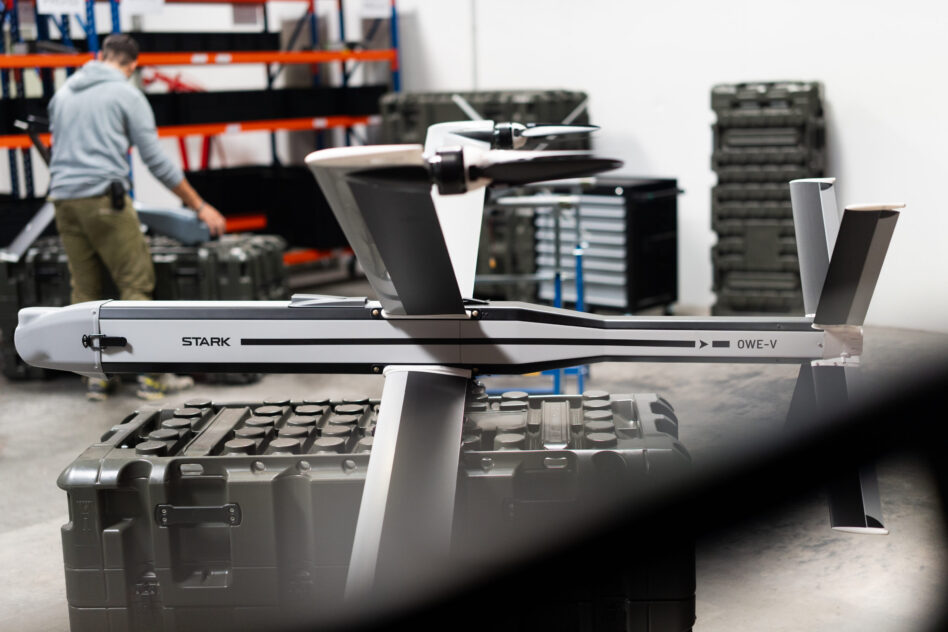Things are heating up in Europe, y’all. Yesterday, Bloomberg reported that German drone company Stark is in talks to raise $60M at a $500M valuation, led by US-based mega-VC Sequoia Capital. A company spokesperson confirmed the raise to Tectonic.
Other funds in talks to join the round include 8VC, Thiel Capital, the NATO Innovation Fund, In-Q-Tel, Project A, and Döpfner Capital. The round is yet to close, so things could change, but that’s not a bad starting lineup if we do say so ourselves.
Right on target: We’ve covered Stark before: The company was founded in 2024 in Berlin by Quantum Systems (also a drone company) co-founder and CEO Florian Seibel. (Seibel has reportedly stepped away from Stark’s day-to-day operations since.)
Where Quantum Systems bills itself as dual-use (their website says they serve “both commercial AND defense customers”), Stark has, since its inception, remained laser-focused on the defense side of things. The main idea is to build drones and autonomous systems for European and NATO allies that can be produced quickly and at scale.
Last fall, the company raised a sweet €14M ($16.32M) and Peter Thiel reportedly tacked on a $15M angel investment in April, according to Pitchbook data. That initial investment valued Stark at about €90M ($105M), according to Bloomberg reporting from October.
So far, the company has two products:
- Virtus: A VTOL one-way attack drone that can carry a 5kg (11lb) payload and dive at up to 250 kph (155 mph) with a 100km (62 mi) range.
- Minerva: The company’s bespoke Command and Weapons Control (CWC) system, which allows operators to swarm Stark drones.
Earlier this summer, the company announced that it was opening a production facility in Swindon, in the UK, and acquiring Berlin-based autonomous flight control start-up Pleno. They already have a production facility in Munich and an office in Kyiv, where they work closely with Ukrainian military partners.
Two weeks ago, the company also announced a partnership with TDW Gesellschaft für verteidigungstechnische Wirksysteme mbH (say that five times fast) to develop warheads for Virtus.
Branching out: The company spokesperson told Tectonic that most of the new funding will be used to expand production capacity and invest in R&D. Like many major defense tech startups, the company invests its own capital in developing unmanned systems so that “when [they] need to deliver [they] can.”
Stark is also looking to open more production facilities across Europe, but emphasized that they will only ever sell to NATO countries and key allies, like Ukraine. Along with the production ramp-up, the company will also expand its team—especially in terms of engineering talent.
And it doesn’t seem like they’re just going to build Virtus strike drones forever, either. The spokesperson said that they’re building out a whole “family of [unmanned aerial] systems” with different payloads and ranges and exploring other domains.
Casting out: As for those ever-important military contracts? In April 2025, the German Bundeswehr officially ordered loitering munitions for the first time for testing and trial use—two of the companies reportedly contracted were Stark and their competitor, Helsing.
There are several other governments interested in Stark’s products, according to Stark’s spokesperson, though they couldn’t specify who quite yet. Overall, they said, there is massive international interest in the kind of drones Stark makes, and this funding will supercharge their expansion abroad.

